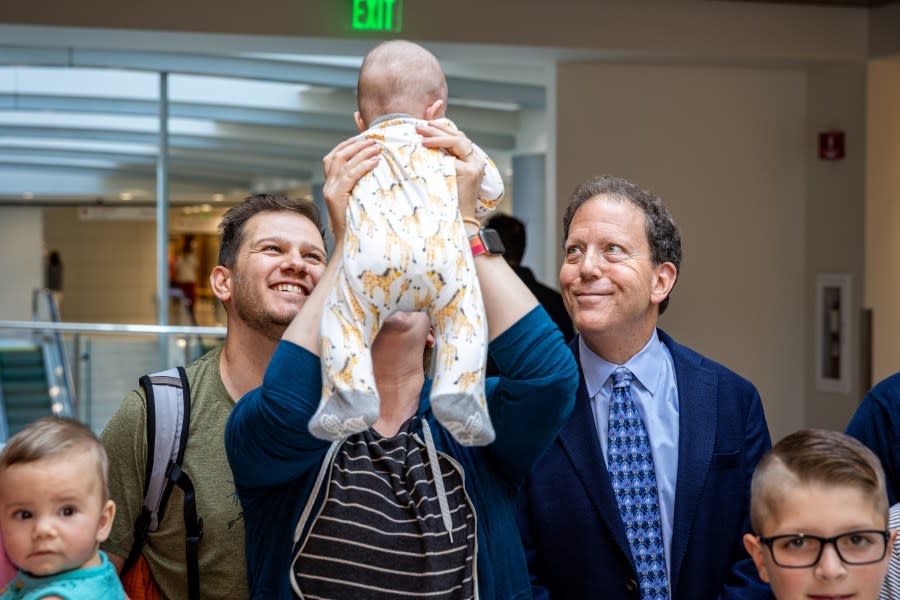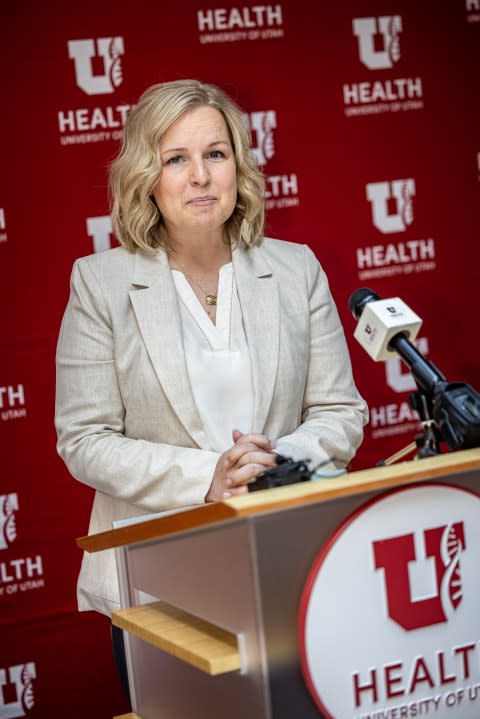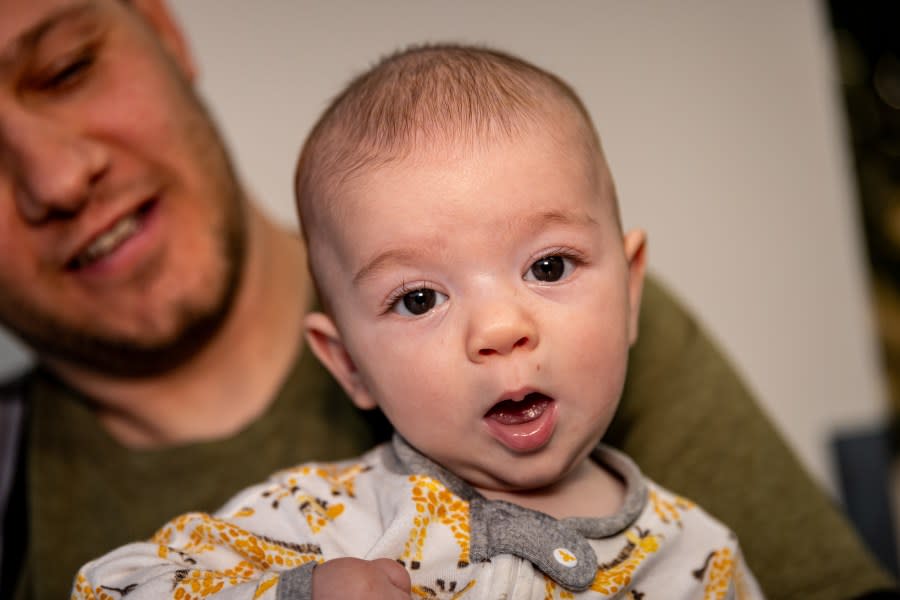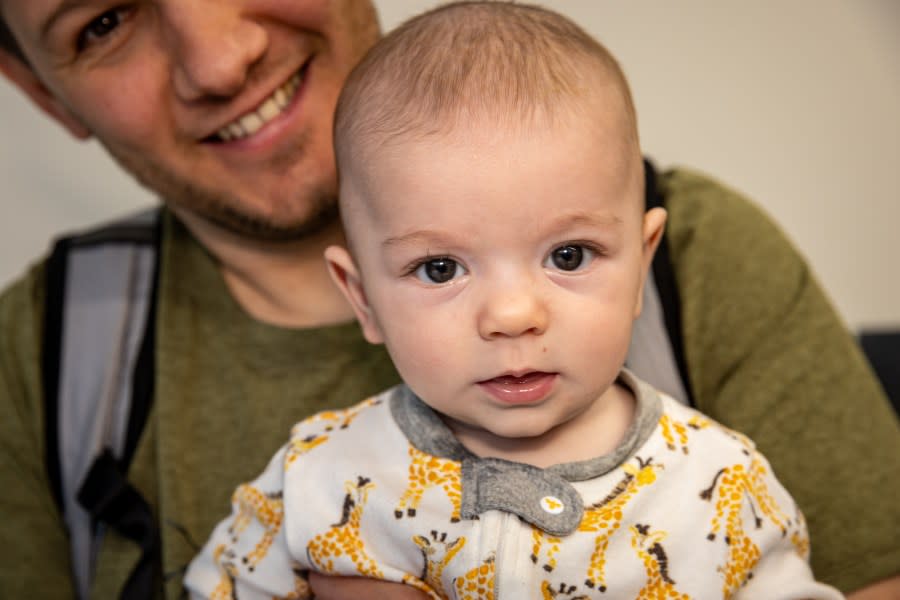‘Pregnancy After Loss’: U of U Health launches first regional program tackling high rates of stillbirth

SALT LAKE CITY (ABC4) — Stillbirth is more common in the United States than in other similar countries, and doctors and patients are working together to tackle the issue here in Utah.
University of Utah Health launched its Pregnancy After Loss program on Monday with a ribbon-cutting ceremony, leading the effort to better address the physical and mental needs of pregnancy loss patients in the region.
READ NEXT: Your kids can ride unlimited public transportation all summer for $50
The program — which officials say is the first of its kind in the region — is designed to serve parents who have experienced a stillbirth, newborn death, termination of pregnancy for medical reasons, recurrent pregnancy loss, or placental disorders, among other conditions.
Dr. Bob Silver said stillbirth is too common in the United States given the country’s medical resources, with it affecting about 1 in 175 pregnancies.
“Stillbirth is really one of the saddest and most devastating pregnancy complications and it’s far too common,” he said. “Even though our country has considerable resources, our rate of stillbirth is much higher than other similar countries and our ability to decrease that rate has been much slower than other similar countries.”

He said this clinic is part of an effort to improve that rate both in Utah and in the country as a whole. However, he added that the medical part is not the only aspect that needs to be addressed with patients.
“We’ve learned that even more importantly than the medical parts of this are the emotional parts of this,” Silver said.
He said patients are often “emotionally traumatized” after losing a baby and medical appointments for subsequent pregnancies that usually are exciting for patients — such as getting an ultrasound — can trigger fear and anxiety.
According to Silver, the program was crafted through collaboration with patients who had endured a pregnancy loss. Medical professionals asked what they lacked in their care and developed this program to meet those needs.
One of those patients, Jaymie Maines, spoke at the ribbon-cutting ceremony about her experience with pregnancy loss. She said she was informed by her healthcare provider at the time that her full-term baby did not have a heartbeat and felt her provider did not have compassion for her feelings.

She said she was desperate to speak with someone who had been through a similar loss and found a group of six people to connect with.
“This peer-to-peer support changed the trajectory of my grief and I wasn’t alone in my thoughts, feelings, and experiences. It was crucial for my healing,” she said.
She said she was nervous to get pregnant again after her experience but was referred to Dr. Silver who was attentive and showed “real interest” in her loss and mental health. He has since delivered three of her babies.
Dr. Rana Jawish said during the ceremony that up to 70% of women who have lost their pregnancy have experienced anxiety, fear, and intrusive memory that can meet the criteria for Post-Traumatic Syndrome (PTS).
She said this program will have a multi-disciplinary approach to help patients address both their physical and mental health following a loss. The clinic is also working to develop a peer-to-peer support program so patients can connect with others during the grieving process.
Patients will also be given symbols or pins that signal to the clinic’s medical professionals that they have endured loss, which will inform staff and help them interact in a way that is best for the patient.
To address the high rates of stillbirths in the U.S., patients will have the opportunity to participate in research to help prevent future stillbirths and reduce the rate of pregnancy loss.
“We really hope that through this clinic we can provide a place that people can come and get the best possible medical outcomes, get the best possible emotional outcomes and support, feel heard, and also connect with each other,” Silver said.
A man holds his baby at the ribbon-cutting ceremony for the Utah Pregnancy After Loss program. (Courtesy of University of Utah Health) A man holds his baby at the ribbon-cutting ceremony for the Utah Pregnancy After Loss program. (Courtesy of University of Utah Health)
The program was inspired by the University of Manchester’s Rainbow Clinic in the United Kingdom and is a pending member of the Rainbow Clinic Network, according to the website.
Medical professionals will help patients — both in person and virtually — explore possible causes for the death of their baby and move forward with another pregnancy if they desire to do so. They will also offer additional appointments and provide both mental and emotional support during the healing process.
For the latest news, weather, sports, and streaming video, head to ABC4 Utah.



